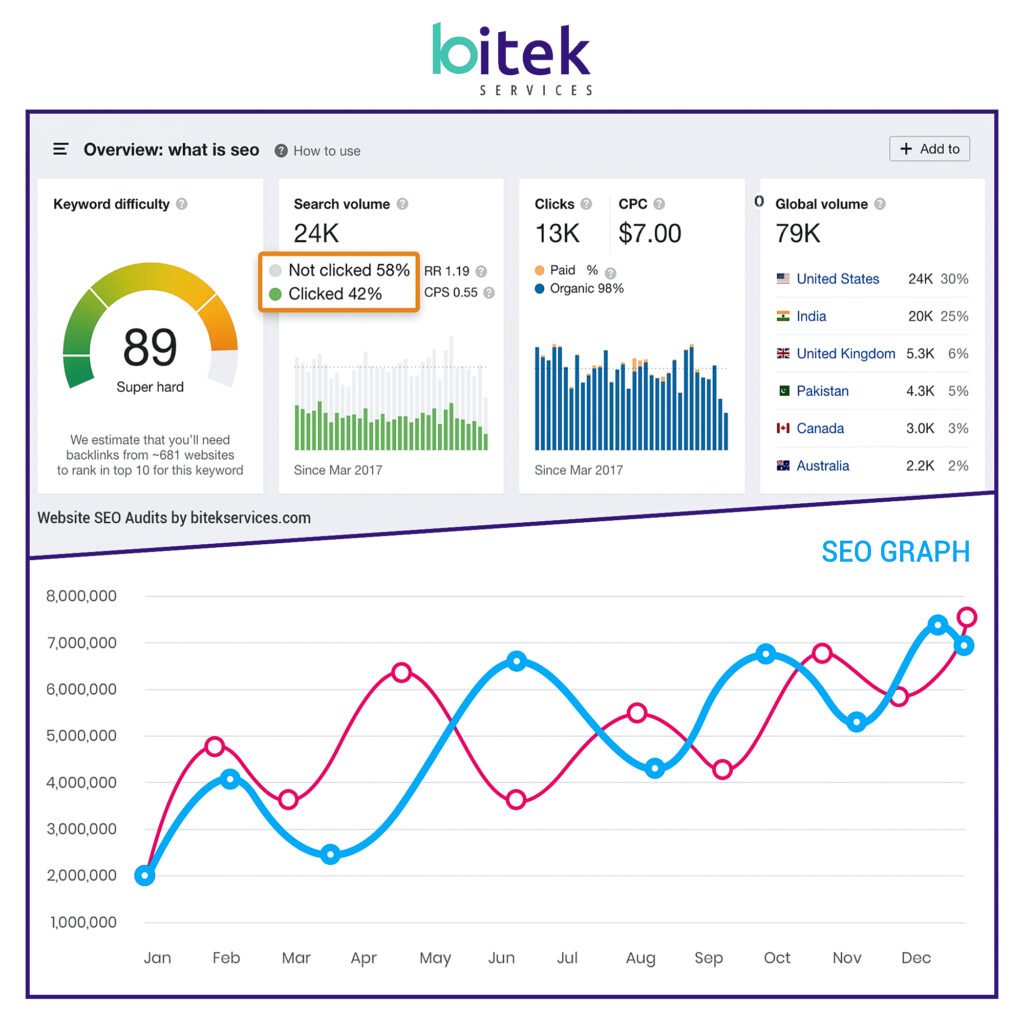Welcome to another edition of SEO Mythbusters Saturday, where we separate fact from fiction in the ever-evolving world of search engine optimization. Today, we’re tackling some of the most persistent myths that continue to mislead website owners and digital marketers alike.
The Great Keyword Density Deception
Myth: “You need exactly 2-3% keyword density for optimal rankings.”
Reality: Search engines haven’t relied on rigid keyword density formulas for over a decade. Google’s algorithms are sophisticated enough to understand context, synonyms, and semantic relationships. Instead of obsessing over percentages, focus on creating natural, valuable content that thoroughly covers your topic. Write for humans first, and search engines will follow.
The key is using your target keywords naturally throughout your content while incorporating related terms and phrases that provide comprehensive coverage of your subject matter.
The Meta Keywords Tag Resurrection
Myth: “Meta keywords tags are making a comeback and boost rankings.”
Reality: Google officially stopped using meta keywords tags as a ranking factor in 2009. This isn’t a recent change or a temporary adjustment – it’s been over 15 years. Spending time stuffing keywords into meta tags is not only useless but can actually signal to competitors what keywords you’re targeting.
Instead, invest your time in crafting compelling meta descriptions that accurately summarize your content and encourage click-throughs from search results.
The Backlink Quantity Obsession
Myth: “More backlinks always equal better rankings.”
Reality: Quality trumps quantity every single time. One high-authority, relevant backlink from a trusted source can be worth more than hundreds of low-quality links from questionable websites. Google’s algorithms have become increasingly sophisticated at identifying and devaluing spammy link schemes.
Focus on earning backlinks through genuine relationship building, creating link-worthy content, and providing value to your industry community. A single mention from a respected industry publication can drive more meaningful traffic than countless directory submissions.
The Social Media Ranking Conspiracy
Myth: “Social media shares directly impact search rankings.”
Reality: While social signals don’t directly influence rankings, they play an important indirect role in SEO success. Social media shares can increase content visibility, drive traffic, and potentially lead to natural backlinks from people who discover your content through social platforms.
Think of social media as an amplification tool rather than a direct ranking factor. Use it to extend your content’s reach and build your brand’s online presence.
The Mobile-First Misunderstanding
Myth: “Having a mobile version of your site is enough for mobile optimization.”
Reality: Mobile-first indexing means Google primarily uses your mobile site’s content for indexing and ranking. Simply having a mobile version isn’t sufficient – your mobile site needs to provide the same high-quality content and user experience as your desktop version.
Ensure your mobile site loads quickly, displays content properly, and maintains all the functionality users expect. A poor mobile experience can significantly impact your rankings across all devices.
The Fresh Content Fallacy
Myth: “You must publish new content daily to maintain rankings.”
Reality: Content frequency matters less than content quality and relevance. Publishing thin, low-value content daily can actually harm your site’s authority. Search engines prefer websites that consistently provide valuable, well-researched content over those that prioritize quantity.
Develop a sustainable content strategy that allows you to create comprehensive, helpful content on a regular schedule you can maintain long-term.
The Technical SEO Terror
Myth: “Technical SEO is too complex for non-developers to handle.”
Reality: While some technical SEO aspects require developer expertise, many fundamental optimizations can be handled by non-technical users. Modern content management systems and SEO tools have made basic technical optimizations more accessible than ever.
Start with the basics: optimize your page titles, improve site speed, ensure mobile responsiveness, and create an XML sitemap. These foundational elements can significantly impact your search performance.
Moving Forward with Facts
The SEO landscape continues to evolve, and myths often persist because they once contained elements of truth or because they oversimplify complex concepts. The key to long-term SEO success lies in staying informed about algorithm updates, focusing on user experience, and creating genuinely valuable content.
Remember that sustainable SEO isn’t about gaming the system – it’s about aligning your website with search engines’ ultimate goal of providing users with the most relevant, helpful, and trustworthy results.
Your Action Plan:
- Audit your current SEO strategy against these myths
- Prioritize user experience and content quality over quick fixes
- Stay updated with official search engine communications
- Focus on building genuine authority in your industry
- Measure success through meaningful metrics like organic traffic quality and user engagement
What SEO myths have you encountered in your digital marketing journey? Share your experiences and let’s continue debunking misinformation together in the comments below.





